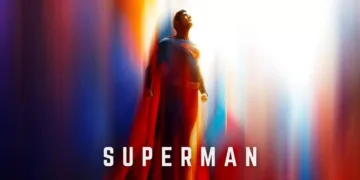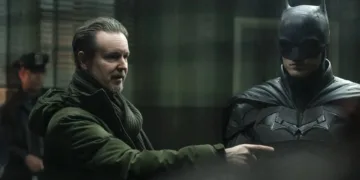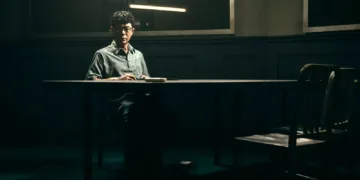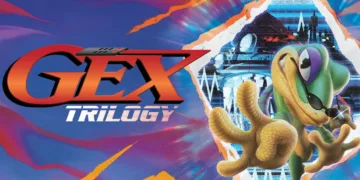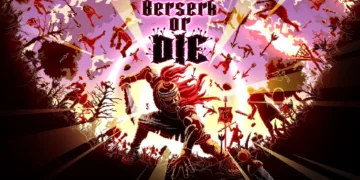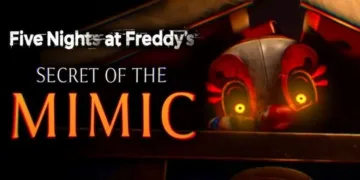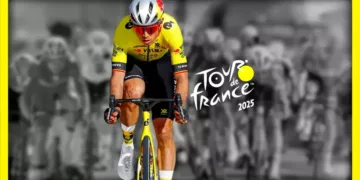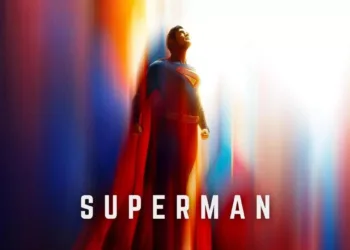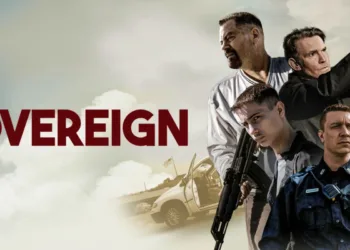The central cultural malady of our era is a deep-seated suspicion of sincerity. In a world mediated by algorithm-fueled outrage and performative irony, what is the utility of a hero who is, without exception, good? Is such a figure a comforting fantasy or a dangerous anachronism? Superman presents its argument on this matter, suggesting that perhaps absolute earnestness is the most potent form of rebellion available.
The picture wisely sidesteps the familiar beats of planetary destruction and Smallville soul-searching. It instead hurls us into a fully saturated, Day-Glo Metropolis where gods and monsters are just another part of the morning commute. This world is a riot of heartfelt sentiment and bizarre comic-book logic, a place where a man can fly but also feels a profound duty to rescue a falling squirrel. (Yes, that happens.)
This is a reframing of the icon. The film is less concerned with the physics of his power and far more invested in the fragility of his idealism. It presents a character whose true trial is not fighting villains, but defending the very concept of kindness from a world that increasingly views it as a weakness.
Metropolis Now
The film commits the refreshingly radical act of assuming its audience possesses cultural memory. There is no belabored tour through Krypton’s final moments, no re-litigation of the Waynes’ pearls in Crime Alley (a different universe, I know, but the principle stands). We are simply dropped into the third act of a story we already know by heart.
Superman has been at this for three years. Lois Lane is not a goal to be won but an established partner who is already in on the secret. This structural decision is a profound courtesy, immediately elevating the narrative from a simple becoming to a much more complicated state of being. It allows the film to engage with what one might call post-mythic anxiety: the quiet dread that follows once you’ve already become the person you were meant to be.
This anxiety is given form immediately. The story opens not with a triumphant display of power, but with our hero’s first-ever defeat, physically bloodied and ideologically bruised after intervening in a messy proxy war between the fictional states of Boravia and Jarhanpur. This is a Superman dragged from the black-and-white morality of the comic panel into the murky gray of modern geopolitics.
The architect of this humiliation is, of course, Lex Luthor, reimagined here as the ultimate 21st-century bogeyman: the tech-baron populist. Nicholas Hoult’s Luthor understands that brute force is archaic. His weapon is narrative. He doesn’t need a death ray when he can control the flow of information, weaponizing social media to frame the alien savior as an existential threat. Luthor’s project is to inflict a death by a thousand retweets, proving that in our age, public perception is a more potent force than a locomotive.
This grim political reality is presented, paradoxically, within a visual landscape of defiant optimism. The film abandons the monochromatic solemnity that has recently defined the genre in favor of a world saturated with the primary colors of its source material. The aesthetic is a conscious rejection of gritty realism, embracing the pulp absurdity of its roots with strange creatures, a dog that flies, and pocket-universe prisons. The visual language insists that even in a world of complex, cynical machinations, wonder is not only possible but necessary.
The God, The Oracle, and The Titan
At the center of this Technicolor fever dream is a purposeful softening of the Superman archetype. David Corenswet’s performance is a study in dutiful decency, imbuing the hero with a sort of aw-shucks sweetness that feels profoundly out of step with our times. This is not a distant, brooding god. He is a fallible being who makes mistakes and, crucially, can be physically humbled.
The sight of a bruised and bleeding Superman is less about raising the physical stakes and more about establishing a symbolic vulnerability. His power, it suggests, is conditional. This vulnerability becomes the bedrock for his central conflict: a crisis of purpose ignited by a distorted message from his Kryptonian parents. The revelation that his lineage may contain a directive for domination, not just service, forces him to actively choose his humanity over his heritage. He must decide if he is the son of Jor-El, the alien patriarch, or Jonathan Kent, the Kansas farmer.
Acting as the story’s dialectical engine is Rachel Brosnahan’s Lois Lane. She is a pragmatic, whip-smart journalist whose cynicism is a necessary counterbalance to Clark’s profound earnestness. Brosnahan plays her with the rapid-fire cadence of a 1940s screwball heroine, serving as the audience’s proxy by asking the questions we are all thinking. An early scene, framed as an interview between reporter and subject, operates as a riveting ethical sparring match, their intellectual friction crackling with more energy than any computer-generated explosion. Their relationship is not a romantic subplot; it is the film’s moral anchor, tethering the god to the messy, complicated world he has sworn to protect.
Opposing them is a villain forged in the crucible of our specific moment. Nicholas Hoult’s Lex Luthor is a terrifyingly familiar figure: the tech-megalomaniac who believes his vast fortune has granted him philosophical infallibility. His motivation is a toxic brew of raw, almost pathetic jealousy and a coherent political argument against unaccountable power. He despises Superman not just for his strength, but for being so effortlessly loved.
Hoult portrays him as a smarmy, preening creature, a worm with a god complex, yet possessed of a dangerous intelligence. He is the walking embodiment of Silicon Valley hubris fused with populist rage, a man who would burn the world down if it meant he could finally be the one holding the match. We recognize him not from the pages of a comic, but from our daily news feeds.
The Anxiety of Abundance
The Metropolis of this film is pathologically overcrowded, not just with people but with super-people. We are introduced to the “Justice Gang,” a collection of corporate-sponsored capes who represent a kind of superhero-as-gig-worker commentary. There is Nathan Fillion’s Green Lantern, a jock whose cosmic power has done little to temper his native arrogance, and Isabela Merced’s feral Hawkgirl.
These figures initially appear to be symptoms of the genre’s worst tendency toward cinematic universe bloat, but they are woven into the fabric of the story with surprising care. The standout is Edi Gathegi’s Mister Terrific, a man whose supreme intelligence seems to have blessed him only with a profound weariness for the surrounding absurdity. He is the film’s intellectual anchor, a scene-stealing presence whose dry wit grounds the film’s more outlandish flights of fancy.
Then there is the dog. Krypto the Superdog serves as a source of chaotic humor, but his function is far more symbolic. He is Superman’s power without a superego. A walking, flying, heat-vision-blasting id, Krypto acts as a constant, furry reminder of the destruction Clark could unleash if he ever abandoned his Kent family restraint. He is the joyful, anarchic potential for disaster that must be perpetually managed, a metaphor for power that has not yet been disciplined by responsibility.
This feeling of everything-happening-at-once is encoded into the film’s very structure. The narrative is a frenetic, almost punishingly dense object, juggling political intrigue, kaiju battles, and newsroom romantic entanglements with the ceaseless energy of a doomscroll. This is cinematic maximalism. The plot’s refusal to slow down or focus on a single thread could be read as a flaw. Or, perhaps, it is the film’s most astute observation, mirroring the sensory and informational overload of contemporary life. The feeling of being overwhelmed is not a bug; it is a feature.
The Radicalism of Goodness
Ultimately, the film’s most audacious claim is that in an age saturated with cynicism, simple kindness is the most potent superpower of all. The story finds its soul not in the city-leveling confrontations, but in the quiet, granular moments of grace: a breathing exercise suggested to a panicked citizen, a moment taken to save a squirrel from traffic. These small acts define Superman more profoundly than his ability to bend steel.
They reframe his heroism not as a function of his alien physiology, but as a series of deliberate moral choices. His decency is not an absence of complexity; it is an active, defiant stance against it. This philosophy extends even to the spectacle. The action sequences, while visually inventive and energized by a diverse roster of powers, are most effective when they emphasize the hero’s pain.
We are meant to see him struggle, to witness the physical toll of his efforts. This is not the invulnerable demigod of past iterations; this is a being who feels every blow. By grounding the spectacle in his vulnerability, the film makes his eventual triumphs feel earned rather than inevitable. The fights are not just about what he can destroy, but what he is willing to endure.
In this, the movie achieves its purpose as a joyful, almost shockingly sincere tonal reset. It rejects the detached, self-aware irony that has become the genre’s default posture and instead embraces the inherent corniness of its subject with unapologetic warmth. It dares to be good-natured in a world that often rewards the opposite. The film’s most lasting impression is not one of explosive power, but of the quiet, revolutionary force of a hero who simply chooses, again and again, to be good.
Full Credits
Director: James Gunn
Writers: James Gunn
Producers: James Gunn, Peter Safran
Executive Producers: Nikolas Korda, Chantal Nong Vo, Lars P. Winther
Cast: David Corenswet, Rachel Brosnahan, Nicholas Hoult, Edi Gathegi, Anthony Carrigan, Nathan Fillion, Isabela Merced, María Gabriela de Faría, Sara Sampaio, Skyler Gisondo, Wendell Pierce, Pruitt Taylor Vince, Neva Howell, Beck Bennett, Mikaela Hoover, Christopher McDonald, Terence Rosemore, Frank Grillo
Director of Photography: Henry Braham
Editors: William Hoy, Craig Alpert
Composer: John Murphy, David Fleming
The Review
Superman
While its frenetic, overstuffed narrative sometimes threatens to overwhelm its emotional core, Superman succeeds as a bold and philosophically rich reinvention. The film's greatest strength lies in its defiant sincerity, anchored by a wonderfully humane performance from David Corenswet and sharp, resonant turns by Rachel Brosnahan and Nicholas Hoult. It thoughtfully explores the place of earnestness in a deeply cynical world, creating a spectacle that feels not just entertaining, but necessary. It is a joyful, messy, and deeply optimistic flight that reminds us why we looked up in the sky in the first place.
PROS
- A heartfelt and vulnerable lead performance that humanizes the icon.
- A sharp, layered script that gives its central trio rich thematic material.
- A vibrant, comic-book-accurate visual style that rejects gritty realism.
- A thoughtful and timely exploration of sincerity versus cynicism.
CONS
- The narrative is densely packed and occasionally chaotic, losing focus.
- Some supporting characters and subplots feel underdeveloped.
- Its relentlessly fast pace can undercut quieter emotional moments.
